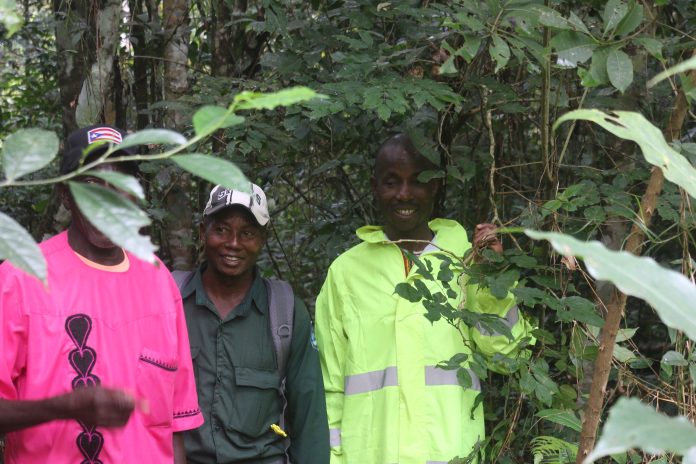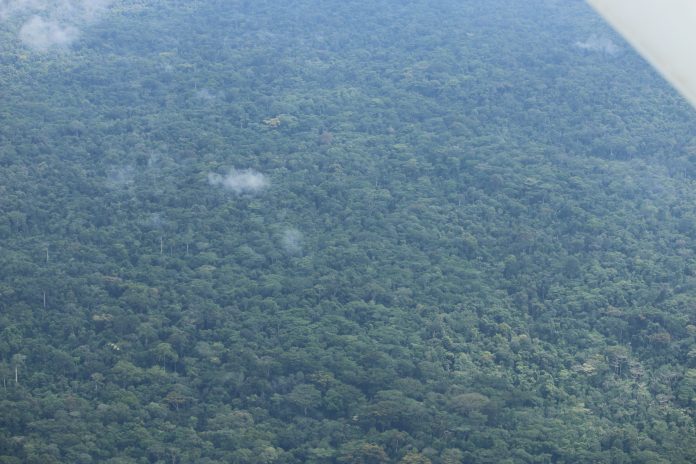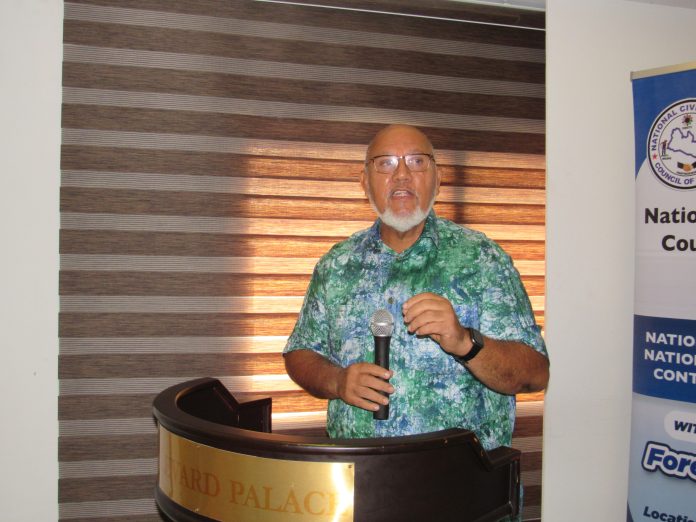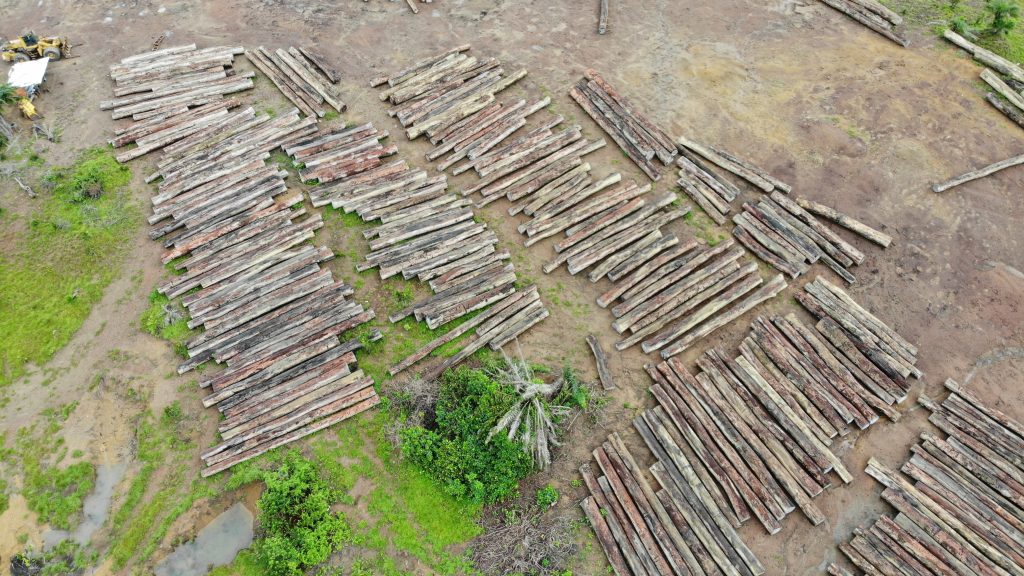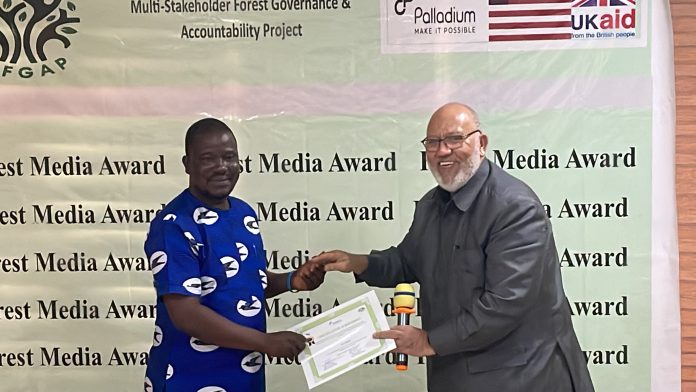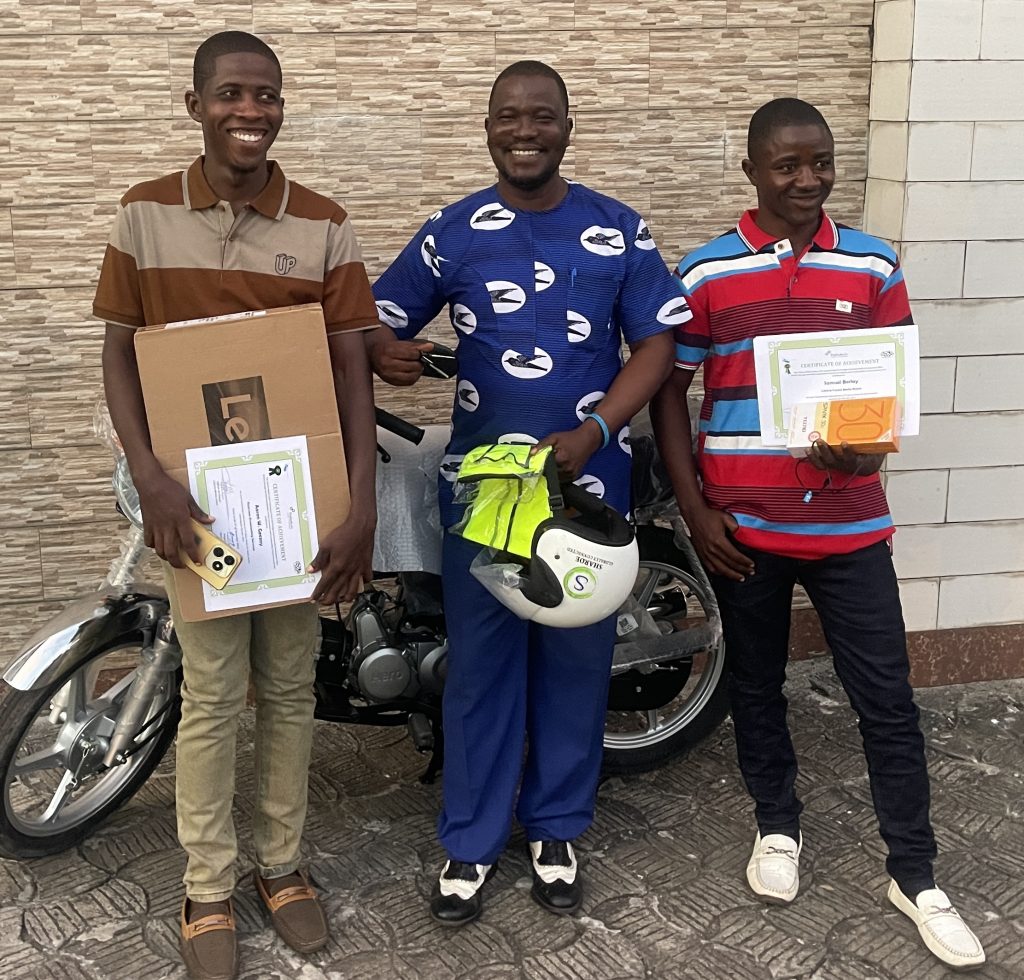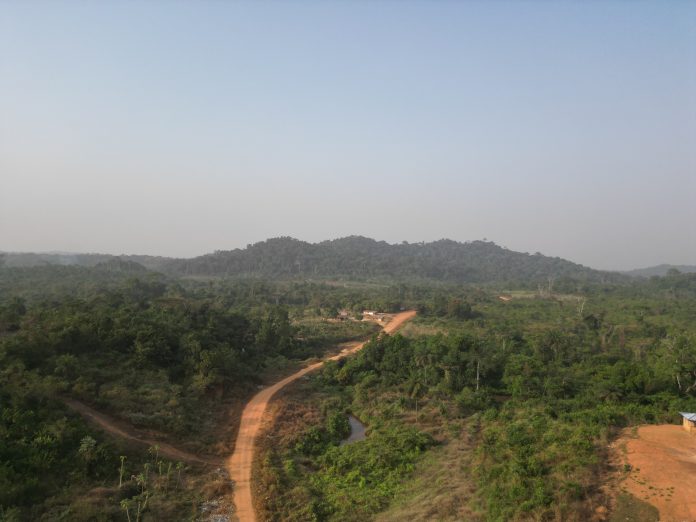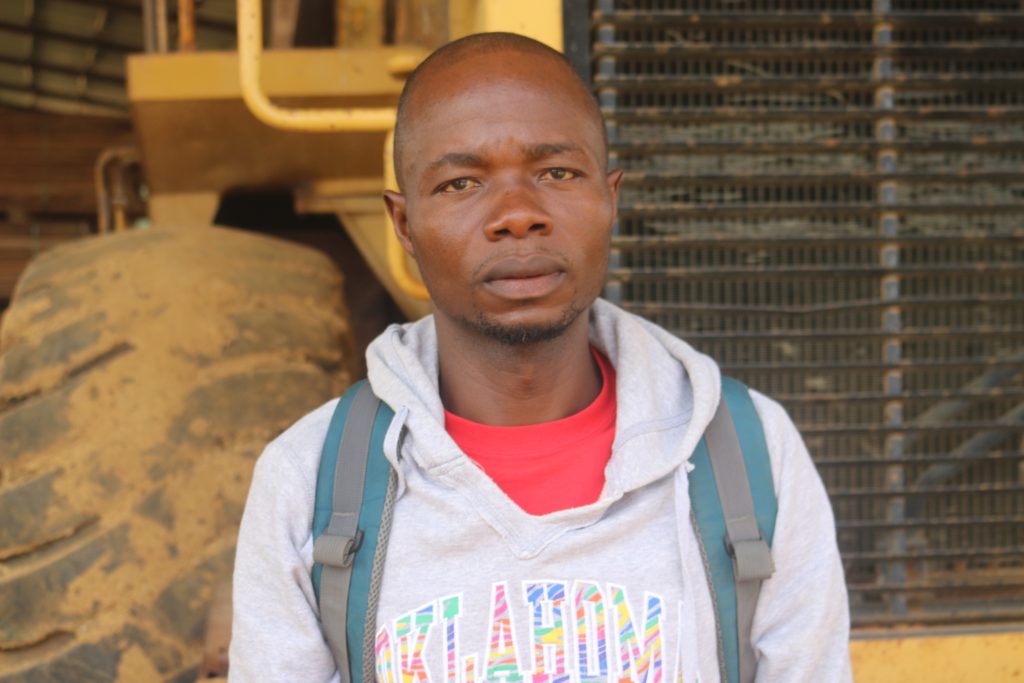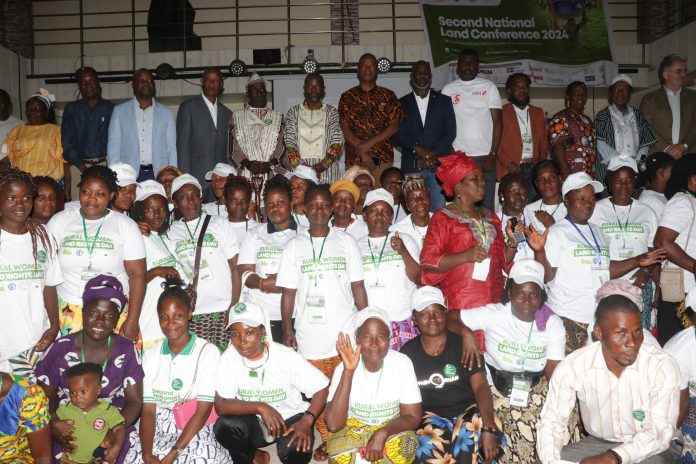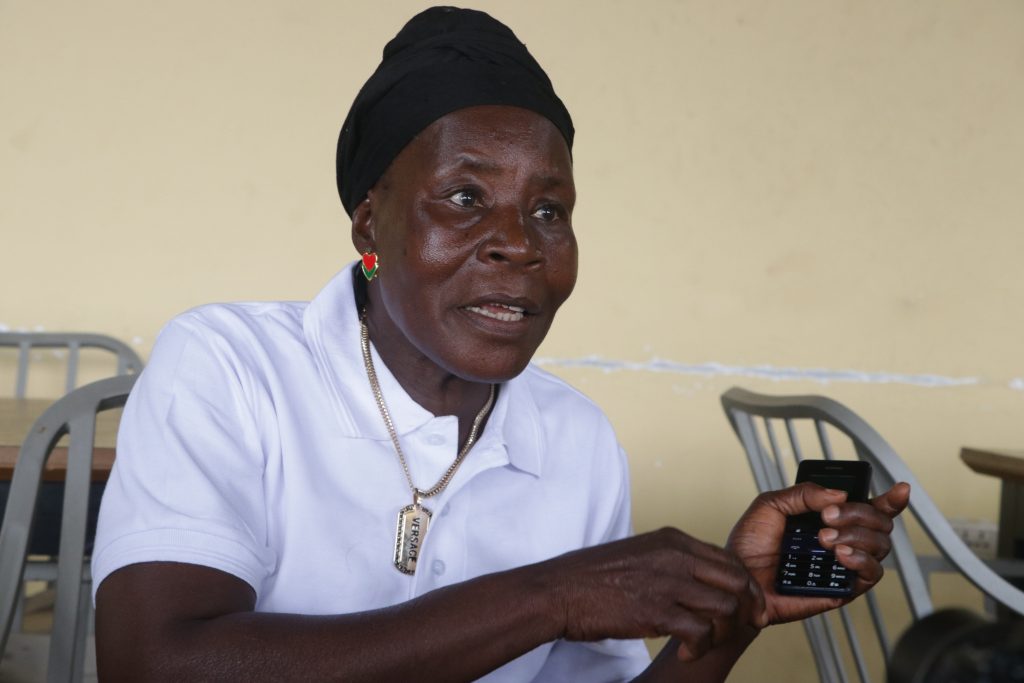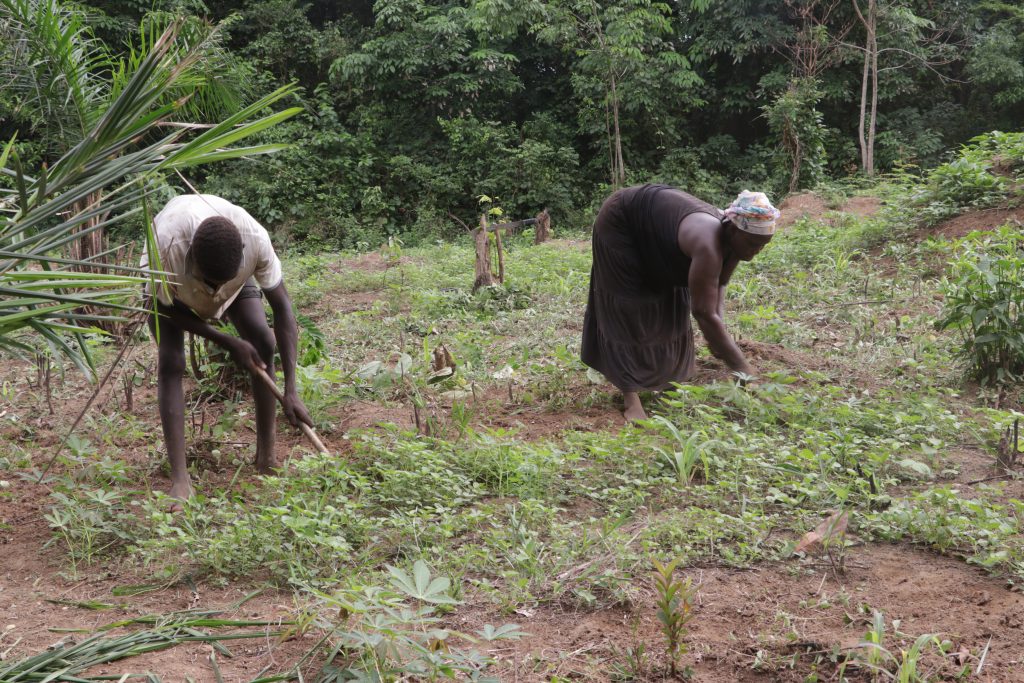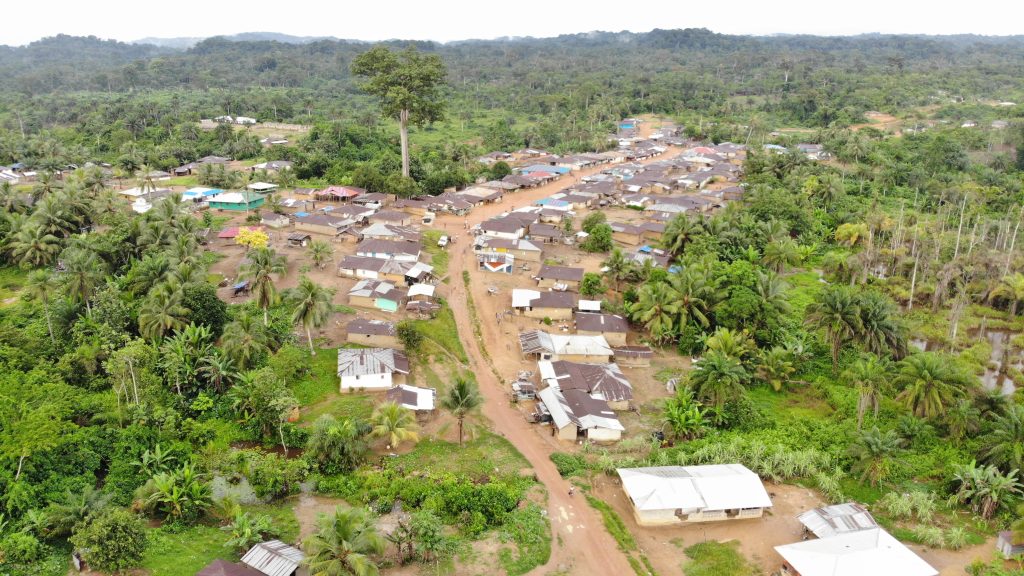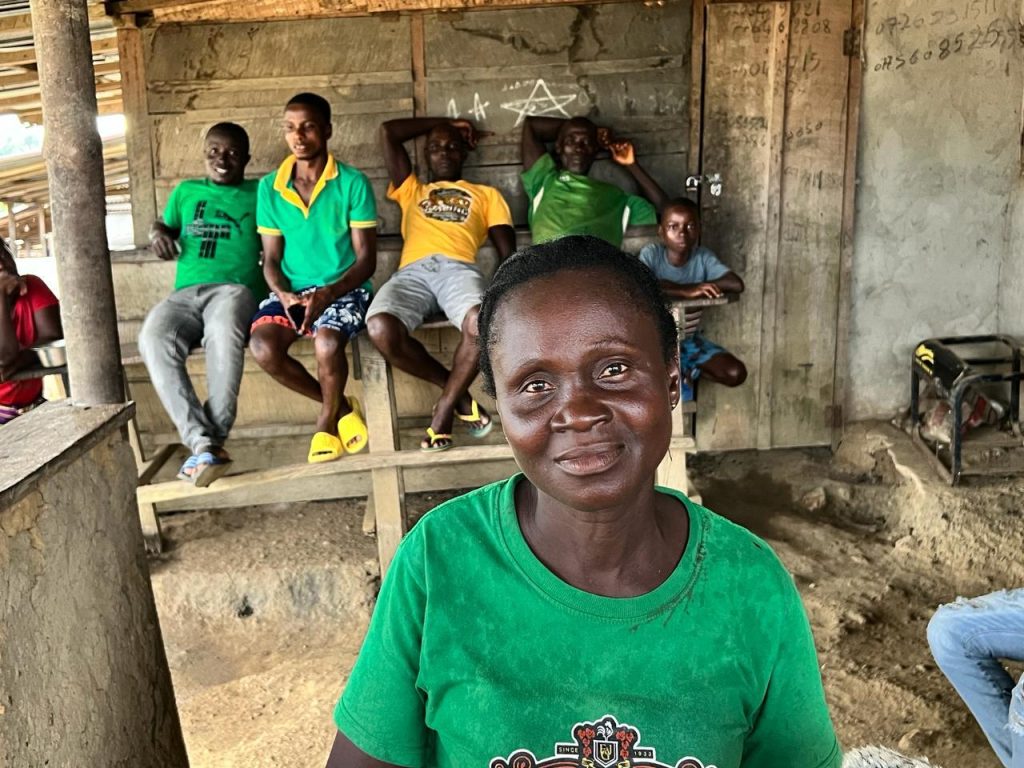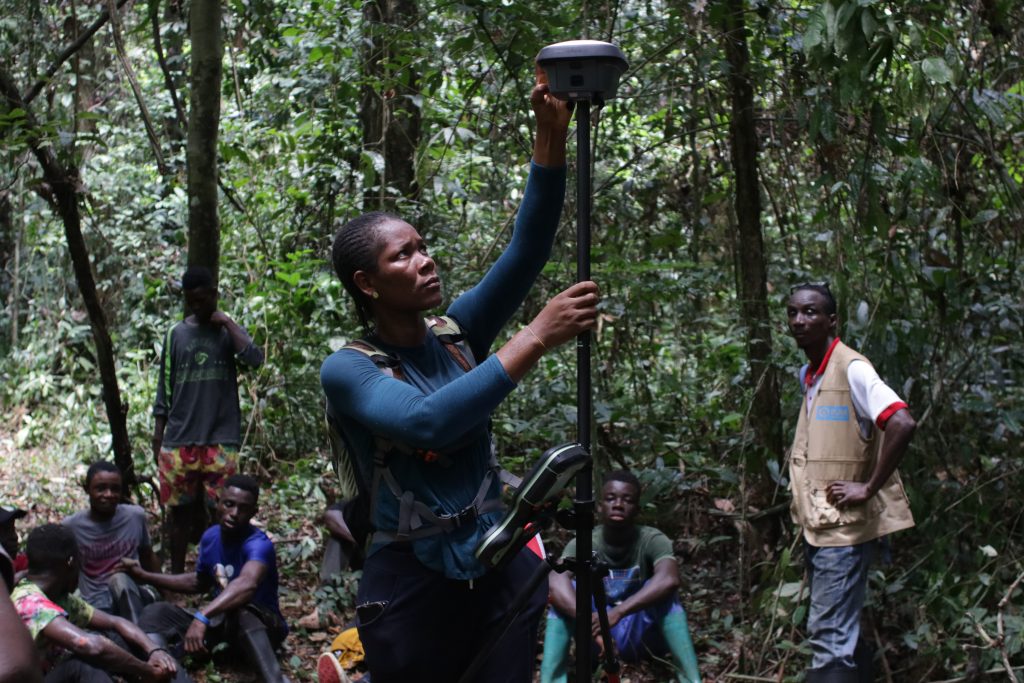Top: Sehyi Ko-doo Community Forest’s members in Sanniquellie-Mahn District, Nimba County. The DayLight/James Harding Giahyue
By Varney Kamara
SEHYI-GEH, Nimba County – Villagers in a northeastern clan seek support to keep their forest amid huge challenges.
On 22 February 2017, the Forestry Development Authority (FDA) and Sehyi Ko-doo Community Forest signed a community forest management agreement that authorized the community to manage its forest.
“We have planted trees and established a management body to protect the forest,” says Ericson Flomo, the leader of the Sehyi Ko-doo Community Forest as The DayLight tours one of the replanting sites.
“We have also put in place other measures to empower the people. We did this realizing that conservation is the best way to save our forest and the environment,” adds Flomo.
“We need resources, training, and capacity building to maintain and grow this initiative. Strengthening our workforce is critical to these efforts.”
The 1,538-hectare forest is next to the East Nimba Nature Reserve (ENNR), a biodiversity hotspot home to rare wildlife, including African elephants, chimpanzees, and golden cats. The FDA and its international partners see Sehyi Ko-doo and neighboring community forests as important for the ENNR’s protection.
In the past, the region hosted logging, hunting, mining and farming, activities that caused deforestation, habitat loss, and threatened species.
Thus, locals are rethinking ways they can benefit from forest resources without cutting down trees or degrading the forests. From 2002 to 2023, Liberia lost 347,000 hectares of primary forest, making up 15 percent of its total tree cover loss, according to the Global Forest Watch, which analyzes satellite images to track deforestation worldwide.
Reforestation
To help solve this problem, Sehyi Ko-doo runs a reforestation program, a community forest guard service and alternative livelihood activities.
Launched in 2019, the project has seen the replanting of 30,000 trees, including 28,000 indigenous species. It is one of the largest reforestation initiatives in the country.
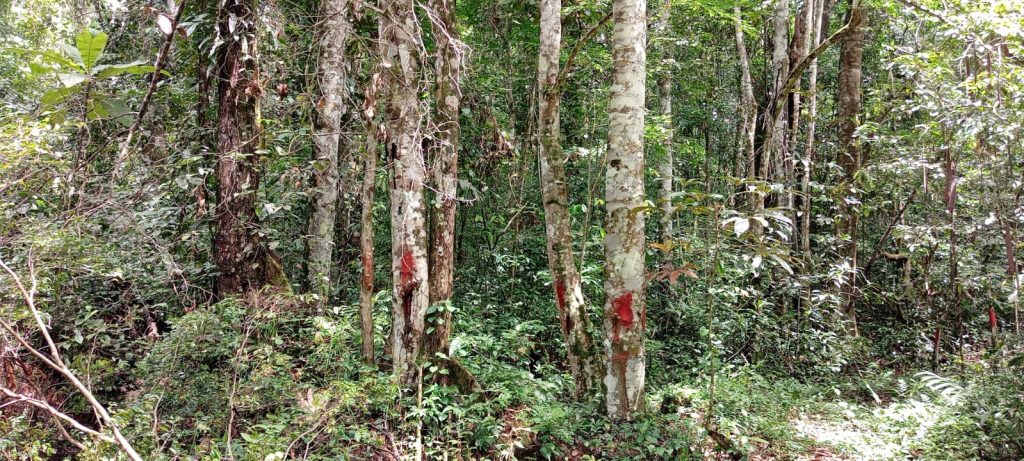
Moreover, Sehyi Ko-doo has put 15,000 trees in nurseries, which have produced high yields. They plan to establish a regional laboratory for plant and medical research.
But there are challenges. Locals do not have a water pump machine so, they water the nurseries manually. Furthermore, the distance between the clan and where volunteers collect seeds on the Guinea border is too far. Volunteers, including Otis Flomo, must make the sacrifice. (The Flomos of Sehyi Ko-doo are all related one way or the other, according to a local legend)
“We can go in the bush, bring the seeds before putting them on the ground nursery,” Otis Flomo tells our reporter. The nursery site is on the banks of a river on the Sehyikimpa-Karnplay highway. “We want to appeal to the people to give us one motorbike to be carrying them.”
Forest guards
For effective monitoring, Sehyi Ko-doo has a team of townsmen who regularly patrol the forest to track illegal activities. ArcelorMittal Liberia the project’s main funder, provides a monthly compensation for the guards.
The company has backed conservation projects in the region, including Sehyi Ko-doo’s neighbors: Blei, Zor and Gba Community Forests. It sees the protection of adjacent forests as an important part of managing the ENNR alongside the FDA.
But the support has proved insufficient. Sehyi Ko-doo wants that to increase the guards from 12 to 20. Volunteers lack training, and equipment and need a pay raise.
“Each patrol we make helps us to ensure our forest remains a home for wildlife,” says Emmanuel Flomo. We are also appealing so that the people can add some money to our pay because it is small.”
Emmanuel Flomo’s voice echoes in the forest as he speaks. There were no sounds or signs of logging, mining, or wildlife hunting. The noise from chainsaws and earthmovers that once vibrated in the rocky woodland has been replaced by the original cawing of birds, hooting of chimpanzees and rustling leaves from the footsteps of forest guards.
“What we earn here is nothing compared to the work we do. But we continue to work because the benefits of this project extend to the entire community,” says Charles Mele, the nursery supervisor.
Alternative livelihoods
The forest guard service aside, Sehyi Ko-doo runs an alternative livelihoods program to keep locals from the forest. It offers a variety of skills such as women’s arts and crafts, traditional tie dye, tailoring, soap-making, and computer literacy.
Also, Sehyi Ko-doo is building its headquarters in Sehyi-Geh. When completed, the structure will consist of a 250-person conference center and four offices.
It was built with US$42,000 from Solway Mining Inc., which had an iron ore exploration contract with Sehyi Ko-doo, and funds from ArcelorMittal.
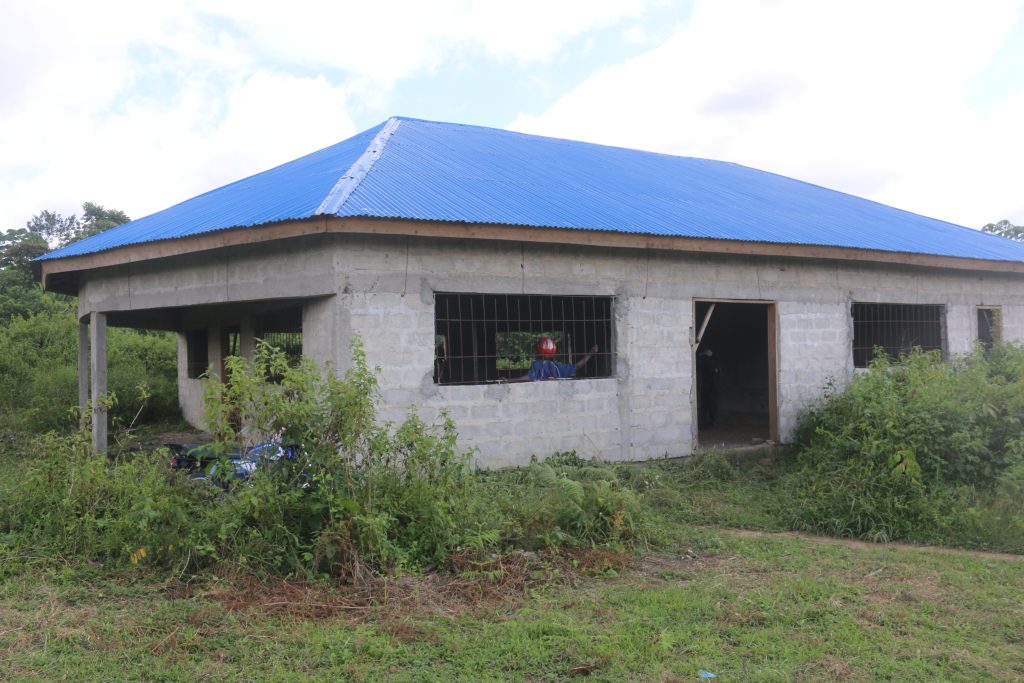
“Our forefathers saw the need to protect the forest and its resources. As members of the current generation, we are under obligation to protect this heritage to save the unborn generation,” says Flomo.
“Now, we have a collective responsibility to repair the damage and ensure future generations benefit from the forest.”

